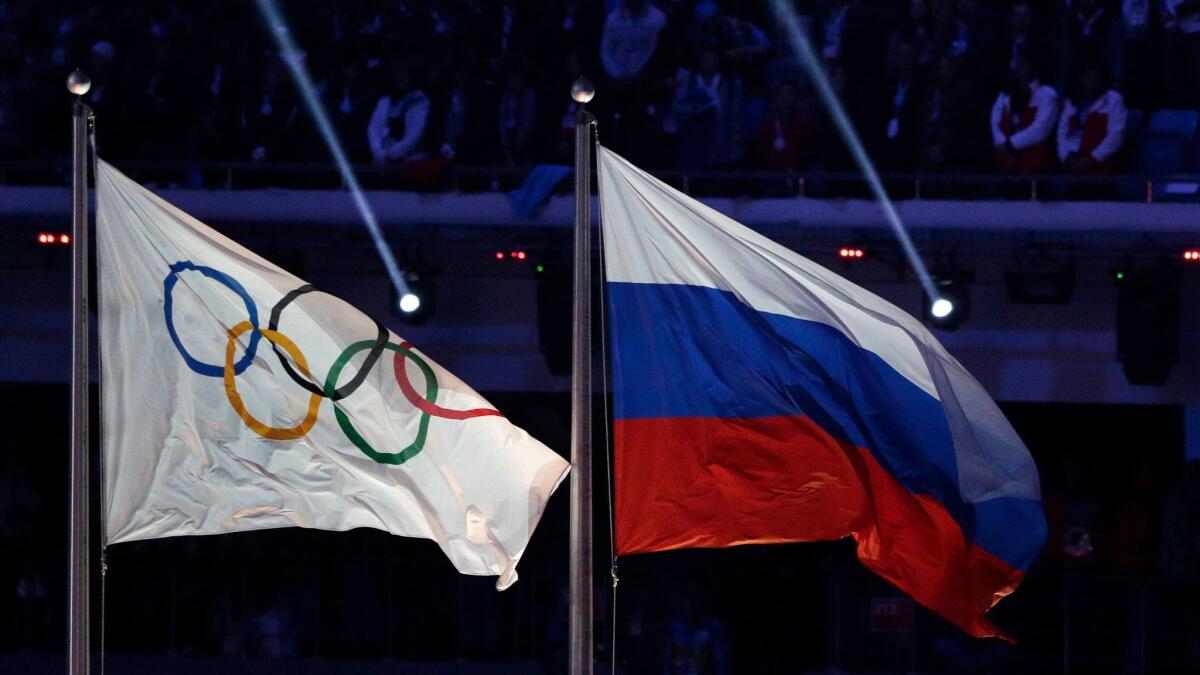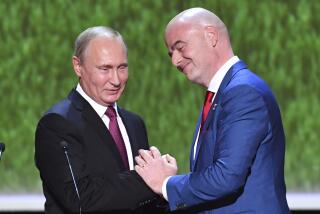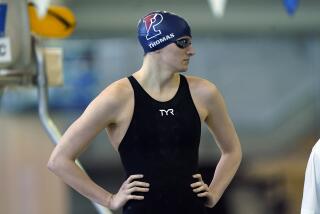28 Russians have Olympic bans overturned but might still be barred from Winter Games

Reporting from MOSCOW — The Russian doping scandal took a dramatic turn Thursday when an international court threw out the Olympic bans for 28 athletes from the embattled nation.
The ruling drew an immediate response from International Olympic Committee officials who voiced their “disappointment” and said they might still block the athletes from the upcoming 2018 Winter Games in Pyeongchang, South Korea.
“Not being sanctioned does not automatically confer the privilege of an invitation,” the IOC said in a statement.
In addition to overturning the bans, the Court of Arbitration for Sport reinstated seven medals that had been stripped from Russia dating back to the 2014 Sochi Olympics.
It also reduced the lifetime ban on 11 athletes, saying they should be held out of only this month’s Games.
The IOC sanctions were triggered by investigations that found widespread cheating among Russian athletes, coaches and officials. Part of the wrongdoing involved Russian lab workers tampering with samples to keep athletes from testing positive in Sochi.
In a highly technical effort, the IOC penalized athletes whose samples appeared to be altered, even though they never actually had a positive test result.
Olympic leaders also suspended the Russian Olympic Committee, which excluded Russia from participating in Pyeongchang as a nation.
The international court said Thursday that its mandate “was not to determine generally whether there was an organized scheme allowing the manipulation of doping control samples in the Sochi laboratory but was strictly limited to dealing with 39 individual cases.”
It had been thought that Russia’s presence in South Korea would be significantly limited. The IOC gave individual athletes an opportunity to apply for spots on an “Olympic Athlete from Russia” squad that will compete under a neutral flag.
One-hundred-and-sixty-nine “OAR” athletes recently gained approval after presenting sufficient evidence they had not cheated.
Now the 28 whose bans were overturned may apply for late acceptance to the Games, which are scheduled to begin on Feb. 9.
In the meantime, Olympic leaders said they will review the court decision but expressed concern that it could set a precedent.
“This may have a serious impact on the future fight against doping,” the IOC said.
Follow @LAtimesWharton on Twitter
UPDATES:
9:20 a.m.: This article was updated throughout with staff reporting.
This article was originally published at 5 a.m.
More to Read
Go beyond the scoreboard
Get the latest on L.A.'s teams in the daily Sports Report newsletter.
You may occasionally receive promotional content from the Los Angeles Times.











